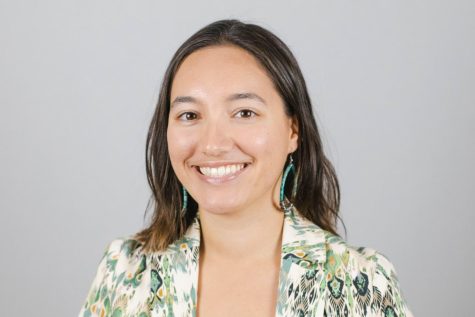NMU students will have the opportunity to have their hearing screened as students of the National Student Speech, Language and Hearing Association (NSSLHA) expand their work across campus.
NSSLHA students recently conducted audiology screenings on music majors and are planning an expansion to screen students of other majors in order to raise awareness about noise induced hearing loss (NIHL).
A group of students, mainly speech, language and hearing sciences majors, was responsible for organizing this cross-departmental event.
“I’m very proud of the students for reaching out into the community and helping test hearing,” said James Zeigler, an assistant professor of speech, language and hearing sciences.
The objective of the audiology screenings is to make people more aware of hearing loss and the prevention of it. In most types of impairment, there is no way to regain hearing.
Some of the students who performed these tests hope to have careers in audiology. They test students’ hearing at different frequencies to see if they have the essential hearing.
Students being screened were given headphones in which sound came through either earpiece, and the students had to raise the corresponding hand when it was heard.
The students tested both of the music majors’ ears at five measures of intensity, or frequency. For the next set of screenings, they’re considering doing a more in-depth assessment at different decibels, according to Tricia Cayemberg, senior speech, language and hearing sciences major and co-president of Northern’s chapter of NSSLHA.
Northern has a complete audiology testing suite, providing the opportunity for more extensive research and screenings. It is part of the Seaborg Science Complex, located in the West Science building.
“Music majors listen to sounds in greater depth than normal people do,” said Cayemberg. “We wanted to screen them because they use their ears so much in music.”
Of the over 30 music majors that were screened for hearing loss, some already feel the effects on their hearing by noise they are exposed to regularly.
“There were actually some students who knew they had a hearing impairment,” said Zeigler.
Other students that the NSSLHA has interest in screening are those majoring in construction management, media production and theater; these students are among those for whom hearing is crucial in potential jobs. According to Zeigler, the students are frequently around loud noises and are more likely to suffer from hearing impairments.
NIHL is caused by either sounds that are too loud or sounds that last a long time. Protection from this type of hearing impairment includes custom fit ear plugs and ear muffs.
Students interested in having an audiology test who are not part of one of the mentioned majors can call 227-2125 and ask for screening by NSSLHA students.























